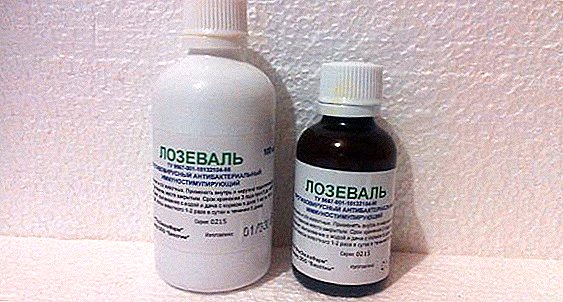 Old pears "Bere Bosk" has not lost its popularity among gardeners for four centuries. The variety has various names: "Bere Alexander", "Bere Apremon", "Bottle". Large fruits ripen in autumn, but their wait is worth it.
Old pears "Bere Bosk" has not lost its popularity among gardeners for four centuries. The variety has various names: "Bere Alexander", "Bere Apremon", "Bottle". Large fruits ripen in autumn, but their wait is worth it.
Inference history
The Bere Bosk variety is of French origin: it was bred near Apremont (Champagne - Ardena) as early as the XYIII century. Its name was in honor of the scientist Pomolog Bosco. A scientist, having seeds of uncertain origin, planted the seed from which this tree grew.
Tree description
The tree is medium thick and rarely reaches a large size, but grows quickly and confidently. Krona has an asymmetric, pyramidal, not thick, consisting of elongated branches. With age, the crown becomes more spreading in nature. Grayish shoots are thick, with pressed buds. Leaves ovate, with a smooth edge, like most pears, but larger. 
Learn more about such varieties of pears as: "Thumbelina", "Tenderness", "Rossoshanskaya dessert", "Century", "Chinese pear", "Krasulya", "Bergamot", "Just Maria", "Elena", "Forest beauty "," Nika "," In memory of Yakovlev "," Children's "," Avgustovskaya dew "," Chizhovskaya "," Ussuriyskaya "," Veles "," Talgarskaya beauty "," Rogneda "," Otradnenskaya "and" Marble ".
Fruit Description
Yellowish-brown fruit attached to the elongated stalk, have an elongated, bottle-shaped. Large enough: the weight of one pear is about 180-200 g. It is worth noting some rust on the surface of the fruit. The skin is not glossy, with a slight roughness. The flesh is white, often milky, very sweet, spicy, with a taste of almond nut. It has a soft, watery texture. 
Pollination
The tree has free pollination. To ensure optimal ovary on the site, you must have another pear-pollinator.
Important! Pears of the Williams, Bere Napoleon and Bon Louise varieties can pollinate this variety.
Fruiting
The tree begins to bear fruit in the sixth year after planting. Ripe fruits cling tightly to the stalks and are practically not prone to shedding. 
Flowering period
During the flowering period in late spring many inflorescences form. White flowers are large and fairly resistant to late frosts in spring.
Gestation period
The ripening season is September. It is noteworthy that the ripening of pears is uneven, and not only the size, but also the shape of the fruit on one tree may differ among themselves.
Did you know? According to the section of the Guinness Book "Big Food", the pear-record holder was grown in South Wales: in 1979, a fruit was recorded weighing 1405 g.
Yield
The Bere Bosk variety has a high yield, especially after the age of 15 years. Farmers give such a description of the yield of pears: a one-hectare pear orchard is able to produce from 80 to 100 centners. 
Transportability
Fruits of a grade "Bere Bosk" are well transportable. Shelf life is 30-40 days, which is not very much for this culture.
Important! If pears are stored for a long time, their taste characteristic decreases significantly: the pulp of the Bere Bosc pear becomes dry and hard during storage.
Resistance to environmental conditions and diseases
Strong fruit stems allow the fruit not to crumble even with strong winds. Also, this tree is little susceptible to fungal diseases, in particular - scab.
Drought tolerance
The tree is unpretentious to the soil, but nevertheless requires a middle in everything. Excessive aridity of the soil, as well as air, does not tolerate well.
Winter hardiness
"Bere Bosk" is perhaps the most frost-resistant of all varieties of culture. Therefore, the most suitable regions for its cultivation are the seaside region.
We advise you to familiarize yourself with all the subtleties: planting (autumn or spring), grafting and trimming of the pear tree.
Fruit use
The fruit of the Bere Bosc pear is best used fresh. For canning the whole, they are not suitable because of the size, but the jams and compotes are excellent. 
Advantages and disadvantages
If you decide to plant this tree on a plot, you should consider some subtleties.
Did you know? Pear fruit helps to bring down the heat in humans.
pros
- Growing rapidly;
- has large, resistant to pests and diseases of the fruit;
- high yield;
- ripens unevenly, which prolongs the period of fruiting;
- resistant to gusts of wind.

Minuses
- Needs regular pruning;
- optimally fruits only in warm regions;
- not frost-resistant and does not like drought;
- occupies a lot of usable area.
This variety deserves attention if only because, despite the existing shortcomings, it has been chosen by gardeners for more than one century, which means that there are much more positive moments in growing Bere Bos pear than it seems at first glance.












